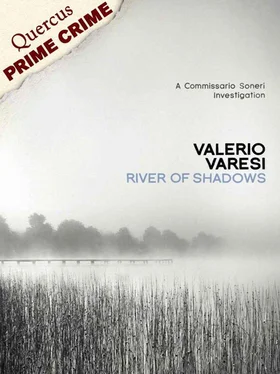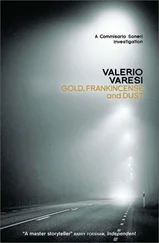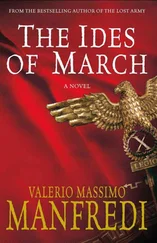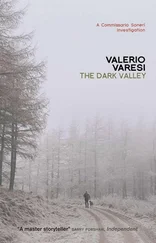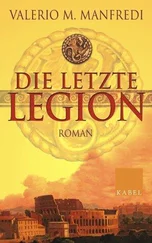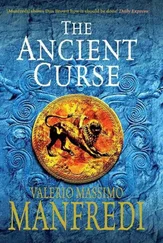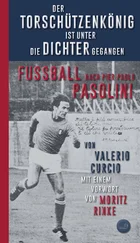Valerio Varesi - River of Shadows
Здесь есть возможность читать онлайн «Valerio Varesi - River of Shadows» весь текст электронной книги совершенно бесплатно (целиком полную версию без сокращений). В некоторых случаях можно слушать аудио, скачать через торрент в формате fb2 и присутствует краткое содержание. Жанр: Полицейский детектив, на английском языке. Описание произведения, (предисловие) а так же отзывы посетителей доступны на портале библиотеки ЛибКат.
- Название:River of Shadows
- Автор:
- Жанр:
- Год:неизвестен
- ISBN:нет данных
- Рейтинг книги:5 / 5. Голосов: 1
-
Избранное:Добавить в избранное
- Отзывы:
-
Ваша оценка:
- 100
- 1
- 2
- 3
- 4
- 5
River of Shadows: краткое содержание, описание и аннотация
Предлагаем к чтению аннотацию, описание, краткое содержание или предисловие (зависит от того, что написал сам автор книги «River of Shadows»). Если вы не нашли необходимую информацию о книге — напишите в комментариях, мы постараемся отыскать её.
River of Shadows — читать онлайн бесплатно полную книгу (весь текст) целиком
Ниже представлен текст книги, разбитый по страницам. Система сохранения места последней прочитанной страницы, позволяет с удобством читать онлайн бесплатно книгу «River of Shadows», без необходимости каждый раз заново искать на чём Вы остановились. Поставьте закладку, и сможете в любой момент перейти на страницу, на которой закончили чтение.
Интервал:
Закладка:
“There’s a wodge of notes in the office…”
“Anyway, you had better know that the barge did about forty kilometres and went aground on the embankment at Luzzara, and there was no-one on board.”
“Somebody didn’t take enough trouble with the mooring cables,” Soneri said carelessly. He was not much interested.
“In point of fact, one of the cables was cut clean through,” Angela told him. “They were talking about nothing else today in court.”
“They’ll all be busting themselves to land the insurance case.”
“Nonsense. They say that the owner, a man called Tonna, loved that barge more than anything else in the world.”
“What did you say his name was?”
“Tonna! Apparently he’s famous on the river. That’s what my colleagues are saying. A transporter. There can’t be many of them.”
The commissario’s head began buzzing like a beehive in May. Angela was almost shouting down the line but the swirl of thoughts had made him nearly deaf.
“Are you listening to me or have you fallen down a manhole?”
“The man who committed suicide today was also a Tonna,” he murmured, as if in a dream, talking more to himself than to Angela.
“O.K., I’m in court in a while. I’m the duty lawyer and have to defend some poor soul or other. Call me later,” she said, cutting him off.
Soneri stuck the mobile in his pocket and made for his office. He pulled the string off the bundle of newspapers and took out the local daily. The headline in the provincial news section read: mystery of the barge. He read about the sudden departure, about the rope that had seemingly been slashed, the light which had been switched on and off and the shock of the empty cabin. And then that surname: Tonna. The owner of the barge was Anteo and he was two years older than Decimo, the suicide victim.
He rang Juvara. “Drop everything at the hospital and get over here. There’s something more interesting to attend to.”
Then he called the control room: “Would you investigate two names for me? Anteo Tonna and Decimo Tonna.”
Immediately, his telephone rang again. Alemanni struck his invariable funereal tone. “That man found dead today. The shattered body? The business at the hospital?”
“Of course, sir.”
“I’ve arranged the post-mortem for tomorrow. Even if personally I do not believe that…”
“One never knows, sir.”
With the erratic grace of a billiard ball on cobbled paving, Nanetti crossed the yard which separated the special force from the forensic unit.
“Right on time for a digestivo,” he said keeping his eye on Soneri, who was busy polishing off his Parma ham sandwich.
“As punctual as a cheque,” the commissario said, reaching into the cupboard for a bottle of port. “This little number was left to mature for a full fifteen years before it was allowed out of the barrel.”
“You understand why I prefer coming to you rather than the other way round.”
“Found anything?”
Nanetti smoothed his moustache. He looked like a dog straining at the leash.
“Incongruities rather than proof, but my experience teaches me that-”
“There are many, many odd facts,” the commissario interrupted him, raising his glass for a toast. “For instance, the dead man used to spend hours in the surgery talking to the patients.”
“Plus there’s the broken glass. And that indentation…”
“That looked suspicious to me as well.”
“Not to put too fine a point on it,’ Nanetti said decisively, “a man who’s going to commit suicide is hardly going to break the glass opening the window.”
“The more so if the window was always half open.”
“And yet more so if we found blood on one of the shards. Blood not belonging to the dead man.”
Soneri put his glass down and looked his colleague squarely in the eye. He now had everything clear his mind, but he gestured with his cigar, inviting Nanetti to go on.
“The indentation, the mark on the cabinet, is new and it’s on the outside of the door, indicating, presumably, where somebody kicked out, and there are traces of rubber. We checked and the rubber is from the shoes the dead man was wearing. You get it, right? There’s been a scuffle, at the end of which one of the two people involved went through the third-floor window.”
“No question about it,” Soneri said.
The telephone rang. It was the officer from the control room.
“Anteo Tonna, born 1921, bargeman by profession, collaborated with Mussolini’s Republic of Salo after being a Fascist official in the lower Cremona district, unmarried, no previous convictions.”
The commissario chewed on his cigar under the watchful gaze of Nanetti, who was observing his agitation.
“Decimo Tonna, born 1923, formerly a self-employed craftsman, he too was a one-time Fascist activist, fled to South America in the ’50s, came back in ’62, detained in a mental hospital five years ago, clean record to date.”
Soneri was about to hang up, taking the pause in the delivery for a sign that the report was at an end.
“Hello? Commissario? ”
“I’m still here.”
“The two Tonnas are brothers.”
This time Soneri let the receiver drop on to the cradle as though it had slipped out of his hand.
“Judging from your expression, the case has turned interesting,” Nanetti said, his own expression mischievous.
The commissario thought for a moment. Two brothers involved in separate cases a few kilometres apart. One who had somehow gone through a window, the other who had disappeared while his barge was navigating the river in spate. Thinking of the Po reminded him that it had been raining non-stop for five days.
Nanetti got up with difficulty. The humidity made the pains in his joints more acute.
“See you tomorrow for the results of the post-mortem.”
Soneri nodded, but he was deep in consideration of the port, almost hypnotized by the liquid in the glass in his hand. In the whirl of that vintage red, he seemed to see the bargeman Tonna carried along by the current until he was swallowed up by the waters. He drank the port in one gulp and reached for the list of the carabinieri quarters in the province.
In Torricella, the telephone was left ringing for some time before the officer on duty decided to answer it. The maresciallo listened to Soneri’s account in silence, leaving the commissario with the impression that he was listening with some considerable impatience.
“One is dead, the other one has disappeared…” Soneri told him.
The maresciallo then explained in detail how he divided responsibility for everything with his colleagues at Luzzara, and that for the time being the flood was as much as he could handle. “I’ve got to evacuate all the families at risk, and the resources at my disposal are limited,” he said, and cut the commissario off.
It was the same story at Luzzara, where the barge had been towed into the river dock, moored and sealed off. Soneri’s inclination was to go there straightaway, but he would have to have authorization from a magistrate. And besides, were the cases linked or was it a coincidence?
Alemanni was nowhere to be found. There was nothing for it but to wait until the results of the post-mortem were available.
At that moment Juvara arrived. He had obviously come some distance on foot and was breathing heavily. The commissario gave him an amused look. “Middle distance is not your speciality.”
“Nor are the squad cars the force’s strong point. My battery gave out on me.”
“Did you find anything of interest at the hospital?”
“They told me of one patient who knew Tonna well, but right at that moment you called.”
“Who is the patient?”
“He’s called Sartori, he has a kidney problem and has to go for dialysis every other day.”
Читать дальшеИнтервал:
Закладка:
Похожие книги на «River of Shadows»
Представляем Вашему вниманию похожие книги на «River of Shadows» списком для выбора. Мы отобрали схожую по названию и смыслу литературу в надежде предоставить читателям больше вариантов отыскать новые, интересные, ещё непрочитанные произведения.
Обсуждение, отзывы о книге «River of Shadows» и просто собственные мнения читателей. Оставьте ваши комментарии, напишите, что Вы думаете о произведении, его смысле или главных героях. Укажите что конкретно понравилось, а что нет, и почему Вы так считаете.
